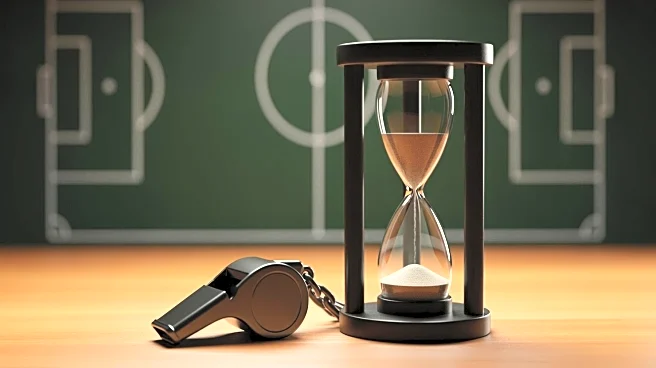What's Happening?
The International Football Association Board (IFAB) is set to discuss potential changes to the Video Assistant Referee (VAR) protocol, specifically regarding its application to second yellow cards. This
follows a controversial incident involving Olympiacos player Santiago Hezze, who received a second yellow card during a Champions League match against Barcelona. The decision, made by Swiss referee Urs Schnyder, was based on minimal contact, raising questions about the effectiveness of current VAR protocols. The IFAB meeting will also address new rules to combat time-wasting in football.
Why It's Important?
The potential expansion of VAR's scope to include second yellow cards could significantly impact the fairness and accuracy of officiating in football matches. This change aims to reduce controversial decisions and enhance the integrity of the sport. Additionally, addressing time-wasting rules could improve the pace and enjoyment of the game for fans and players alike. These discussions reflect ongoing efforts to modernize football regulations in response to technological advancements and evolving gameplay dynamics.
What's Next?
The IFAB meeting will provide a platform for stakeholders, including former players and technical experts, to debate the proposed changes. If adopted, these modifications could lead to adjustments in how matches are officiated globally. The outcomes of the meeting may influence future rule changes and the implementation of VAR technology in football.
Beyond the Headlines
The discussions around VAR and time-wasting rules highlight the broader challenges of integrating technology into sports officiating. Balancing technological precision with the human element of refereeing remains a key consideration for football's governing bodies.










